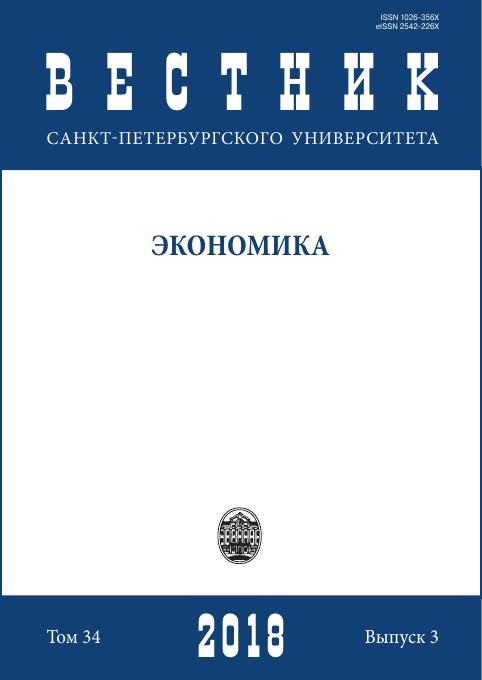Нефинансовая отчетность в экономике: опыт XIX — начала XXI в.
DOI:
https://doi.org/10.21638/spbu05.2018.306Аннотация
В статье рассматривается ряд причин развития практики нефинансовой отчетности, которые характерны для всего периода формирования и распространения публичной корпоративной отчетности как элемента социально-экономических отношений – с начала XIX в. по настоящее время. Анализируются мотивы компаний, формирующих практику нефинансовой отчетности, не связанные с информационным содержанием и удовлетворением информационных запросов потенциальных пользователей отчетных данных. Определяются оказывающие влияние на распространение публичной корпоративной нефинансовой отчетности характеристики деятельности экономических субъектов: стремление к самопрезентации, обусловливающее использование новых видов отчетности как своеобразного рекламного продукта; социочувствительное поведение, делающее отчетность инструментом обеспечения соответствия требованиям среды деятельности; поиск новых конкурентных преимуществ, заключающихся в наличии у фирмы отчетности как знака принадлежности к прогрессивной части бизнес-сообщества. Впервые в контексте изучения развития публичной нефинансовой отчетности рассматриваются годовые отчеты российских акционерных обществ периода второй половины XIX в., в том числе опубликованные в «Вестнике финансов, промышленности и торговли» за период с 1885 по 1900 г.; нормативно-правовые акты дореволюционной России и советского периода развития отечественной экономики первой половины XX в. Данная статья инициирует теоретические разработки вопросов корпоративной отчетности, базой которых могут служить труды в области экономики и социологии, изучающие закономерности распространения новых видов благ. Результаты исследования могут быть использованы в решении вопросов регулирования практики новых видов публичной корпоративной отчетности.
Ключевые слова:
отчетность, информация, нефинансовые данные, качество, достоверность, социальная ответственность, самопрезентация, легитимизация, конкурентное преимущество, социочувствительность
Скачивания
Библиографические ссылки
References in Latin Alphabet
Translation of references in Russian into English
Загрузки
Опубликован
Как цитировать
Выпуск
Раздел
Лицензия
Статьи журнала «Вестник Санкт-Петербургского университета. Экономика» находятся в открытом доступе и распространяются в соответствии с условиями Лицензионного Договора с Санкт-Петербургским государственным университетом, который бесплатно предоставляет авторам неограниченное распространение и самостоятельное архивирование.






